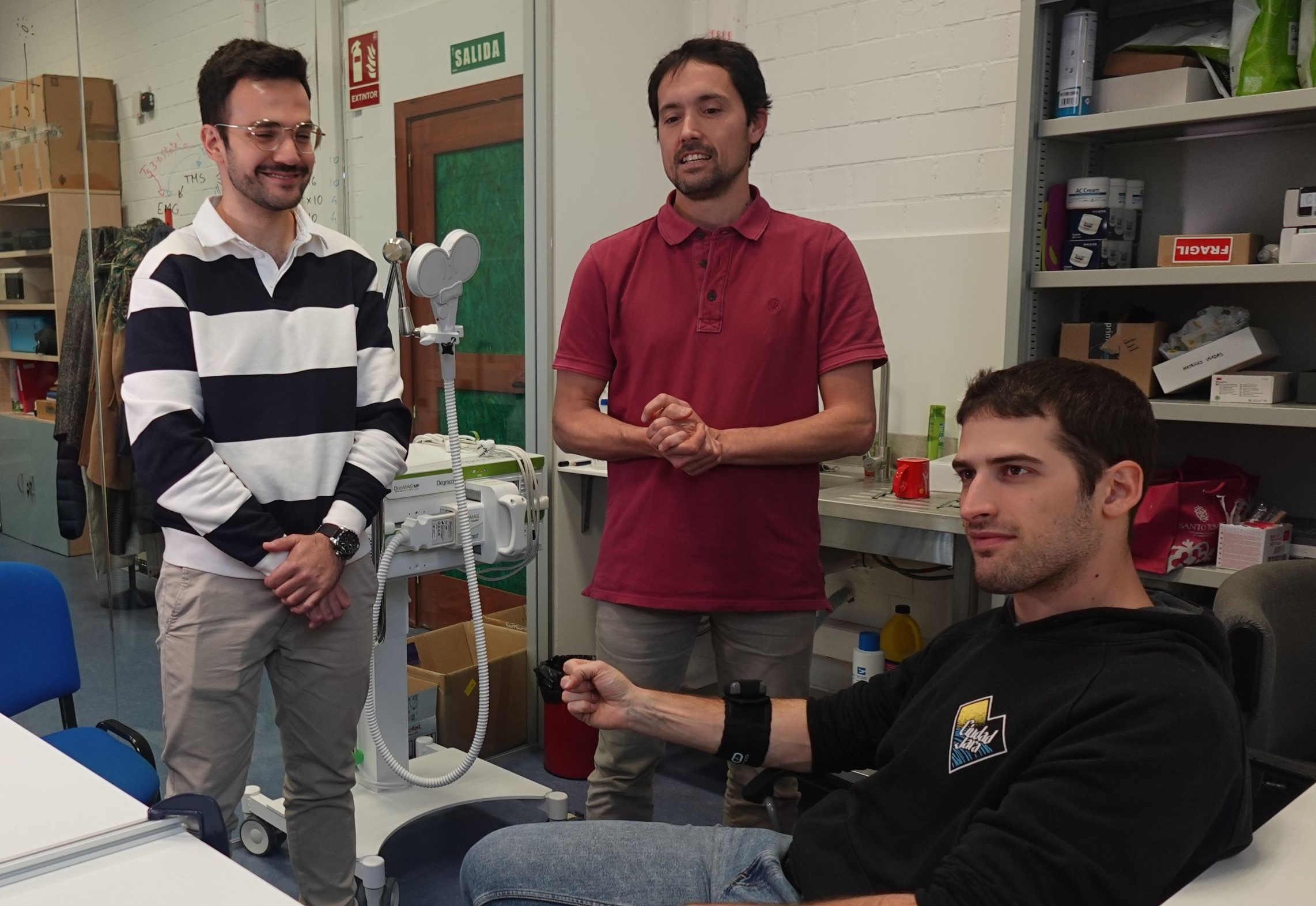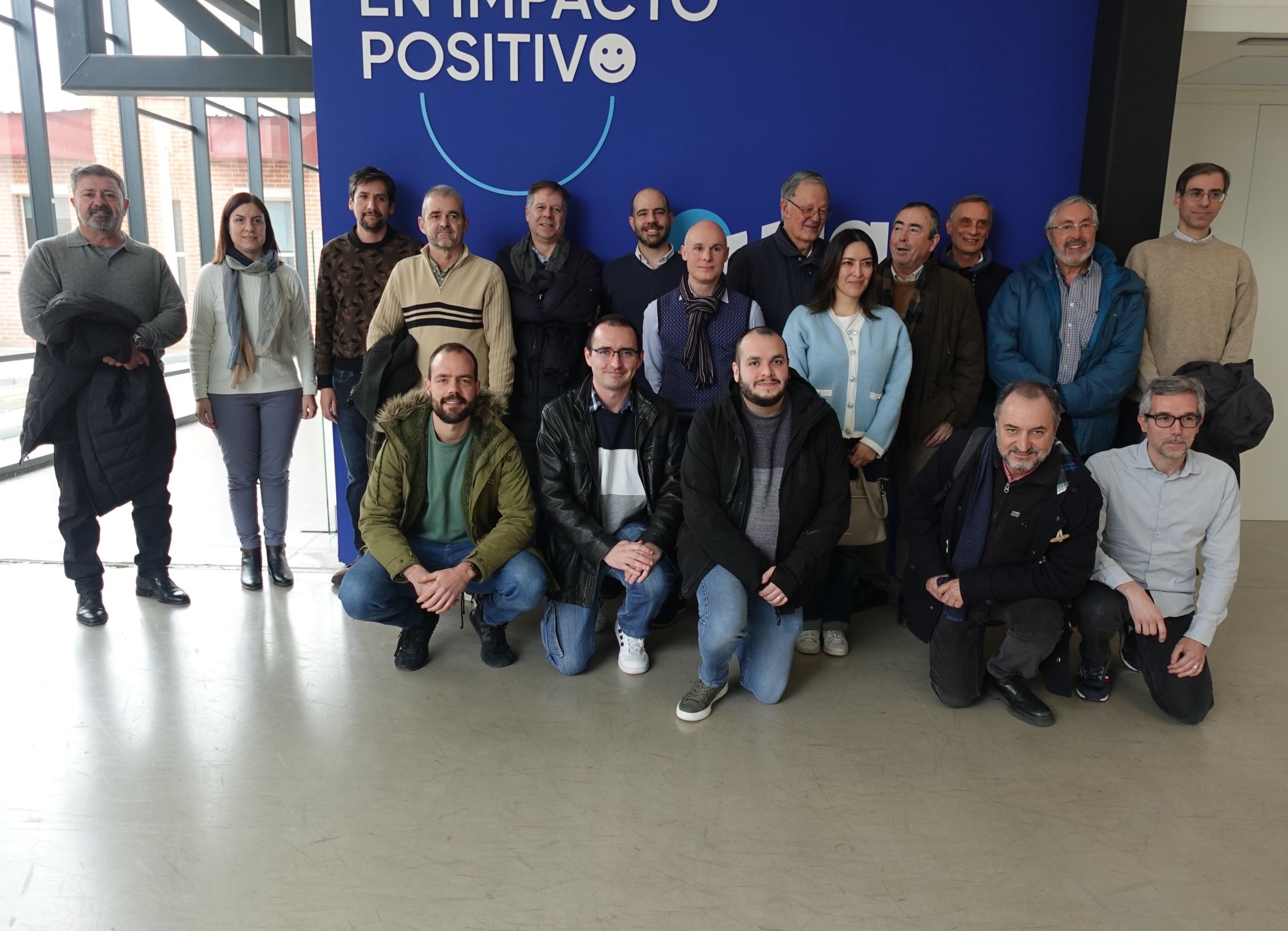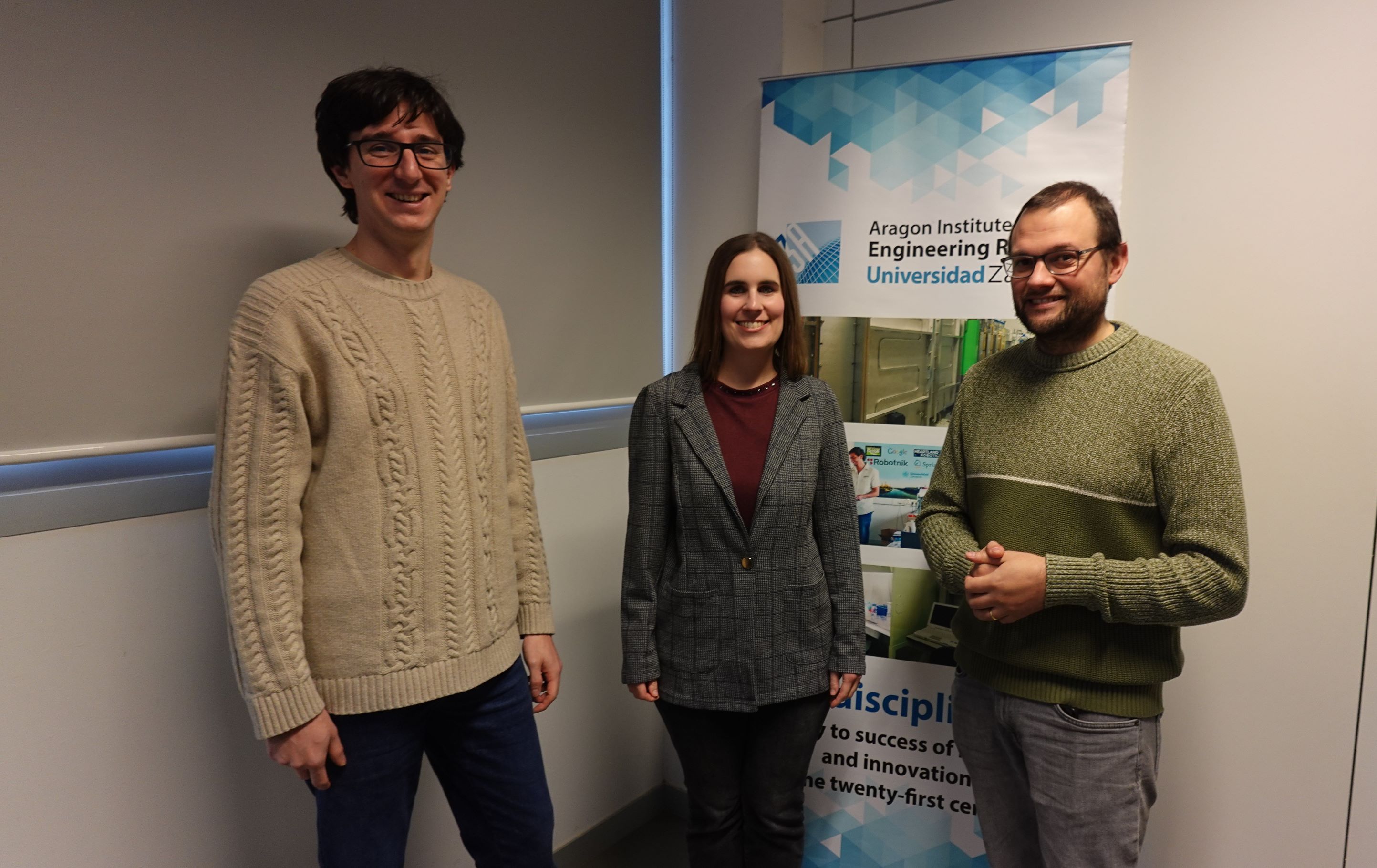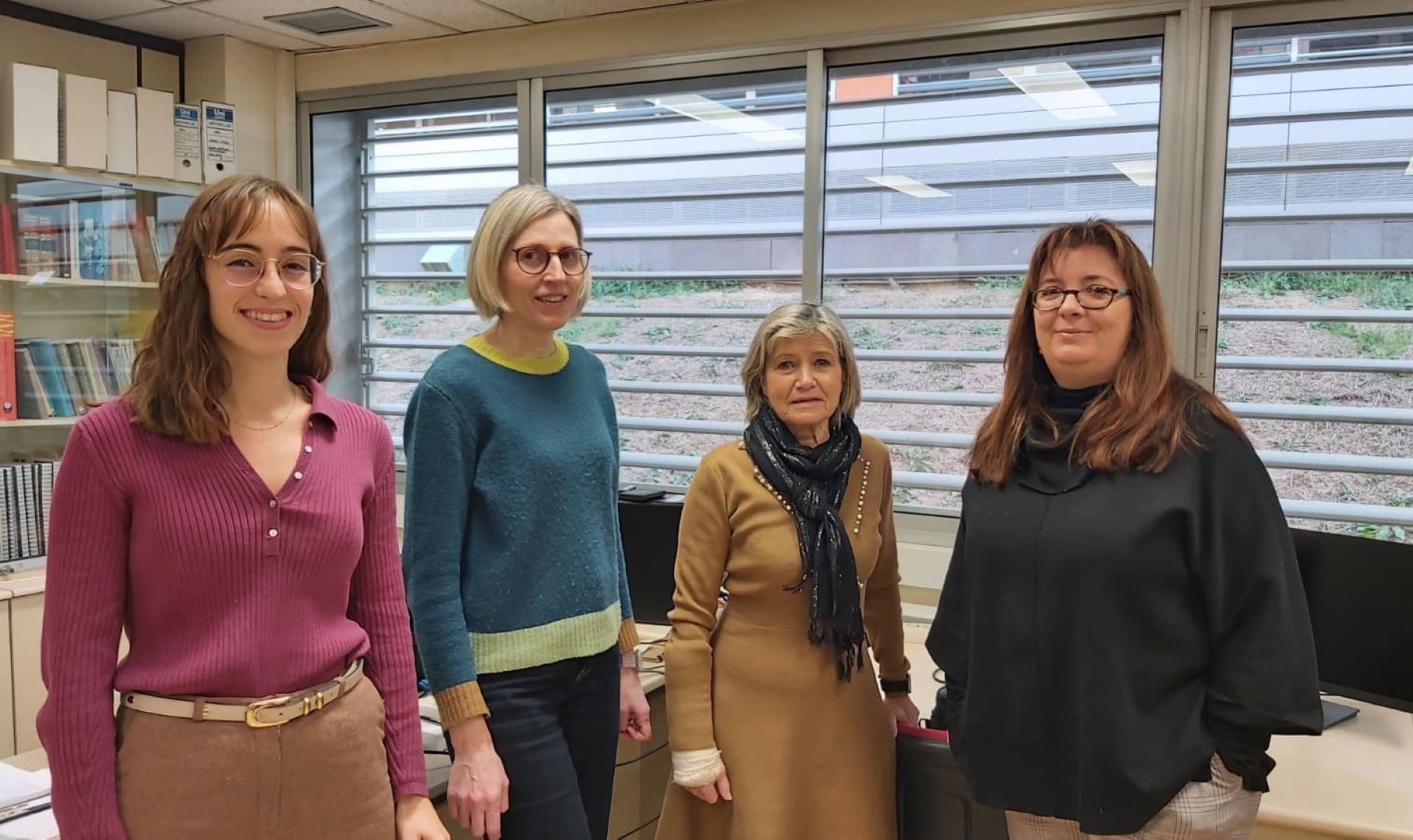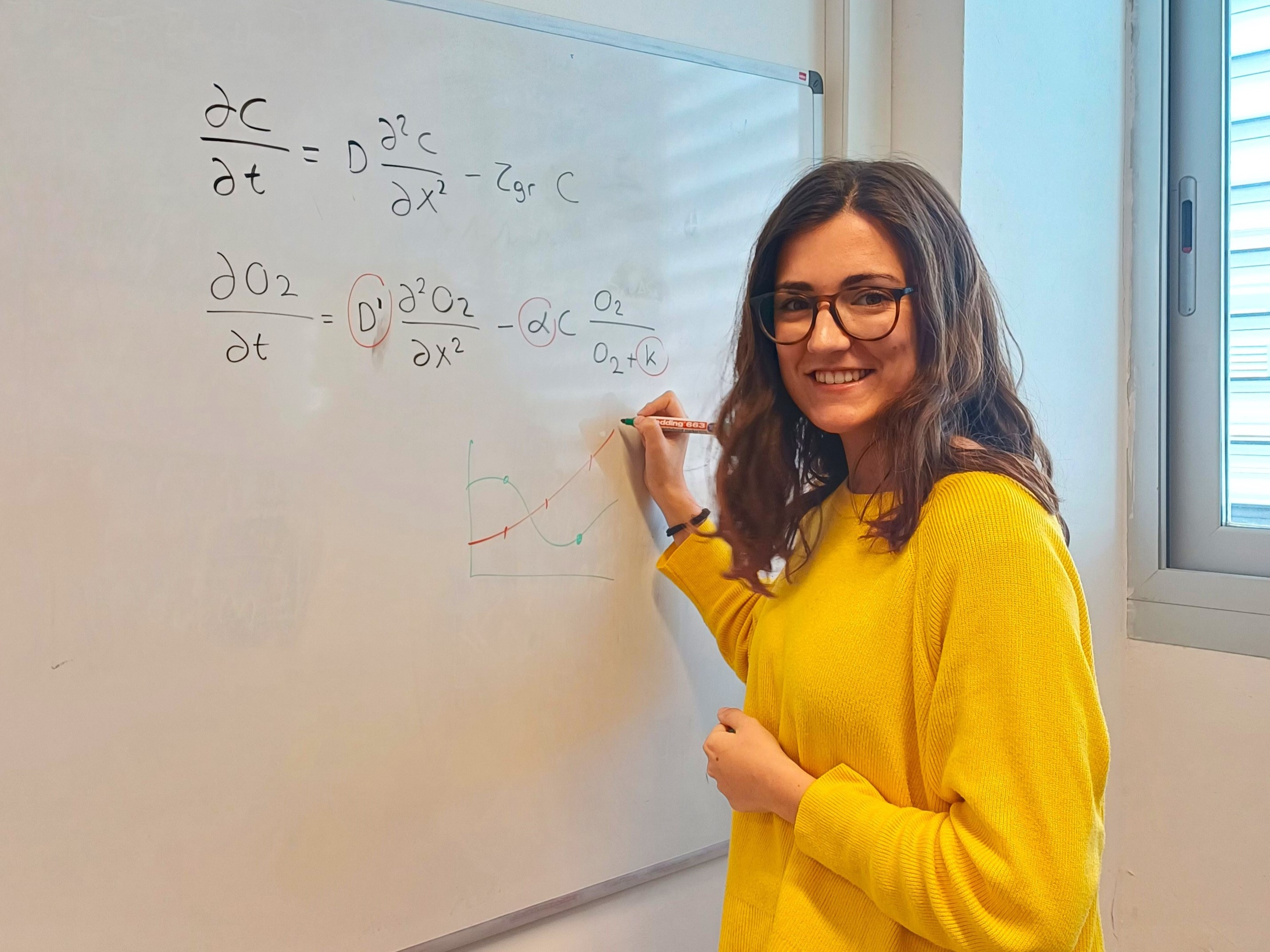
Marina Pérez Aliacar, PhD student and industrial engineer, wins one of the Fulbright grants that will take her on a nine-month stay at the University of Texas at Austin in September, where she will be able to expand her pre-doctoral research project.
This young researcher has been working at the Engineering Research Institute of Aragon (I3A) of the University of Zaragoza since 2021, belongs to the Tissue Microenvironment Lab (TME Lab) group and is in her final year of her thesis. Directed by Dr. Manuel Doblaré, her thesis focuses on the development of mathematical models to simulate cell adaptation in tumour evolution, in particular for glioblastoma, a very aggressive brain tumour with a very low survival rate. A very important line of research because cell adaptation "plays a key role in many cancer processes such as the development of drug resistance".
The Fulbright scholarship is one of the most recognised and prestigious programmes in the world. It allows international collaborations for the development of multicultural scientific projects. The programme, which offers stays of 6 to 12 months for pre-doctoral researchers, awards grants in more than 160 countries, grants that are difficult to obtain with only 10 grants for all specialities at national level in this call.
With this scholarship, Marina will be working in the Centro de Oncología Computacional in Austin in the United States from September 2024 to June 2025 under the supervision of Dr. Thomas Yankeelov, the centre's director. "We are talking about a country that attaches great importance to research," recalls Pérez Aliacar. He chose the University of Texas and Dr Yankeelov's group because his thesis is aligned with the research being done there and because he is familiar with the work carried out by the research group.
During his nine-month stay, he will use the mathematical models of cell adaptation that he developed in Zaragoza to predict the response to glioblastoma treatment using data from real patients. "A great opportunity in a centre that has many contacts with hospitals and that will allow me to extend the models to the real case of the patients so that I can then import this way of working to Spain with the final objective of finding the best therapeutic alternative for the treatment of glioblastoma. the final objective of finding the best therapeutic alternative for each patient". Marina Pérez recognises that this is an important step for her thesis, but it can also help society. Her stay will also be very interesting and enriching to see and learn the different research techniques of researchers from other countries.
This fellowship programme was created in 1946 by James William Fulbright who described it as a programme that "aims to bring a little more knowledge, a little more reason and a little more compassion to world affairs and thus to increase the possibility that nations will at last learn to live in peace and friendship".
This young researcher at the I3A Unizar is very happy. "To tell the truth, I am very happy and very proud because I had heard about the Fulbright grants because they are very prestigious and well-known in the world of research. When I decided to apply, I knew it was a difficult thing to do. Passing the first phase and getting to the interview was for her a "reason for joy" followed by a feeling of happiness when she got it, "when they gave it to me I really couldn't believe it".
A scientific career that had been destined for her since childhood. "Since I was a child, I have always liked both biology and mathematics. It was when she was choosing her specialisation that she decided to focus more on physics, mathematics and engineering because of her interest in solving problems and facing challenges. Engineering because of her interest in solving problems and facing challenges. Thus, Industrial Engineering was a good compromise to do what he likes to do. He studied at the School of Engineering and Architecture of the University of Zaragoza and then started working at the I3A to do his final degree work on the TME Lab group, multidisciplinary group with professionals from Biology, Engineering and Mathematics. "A great opportunity to reconcile engineering and biology in one line of research," adds Marina Pérez Aliacar.
